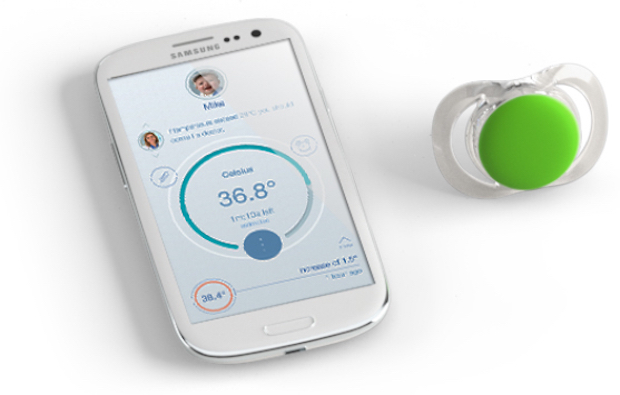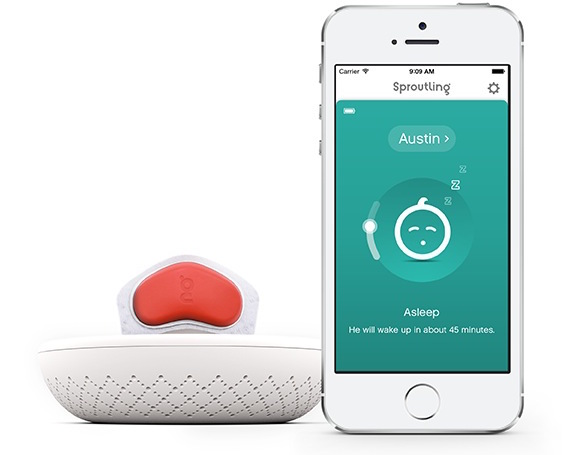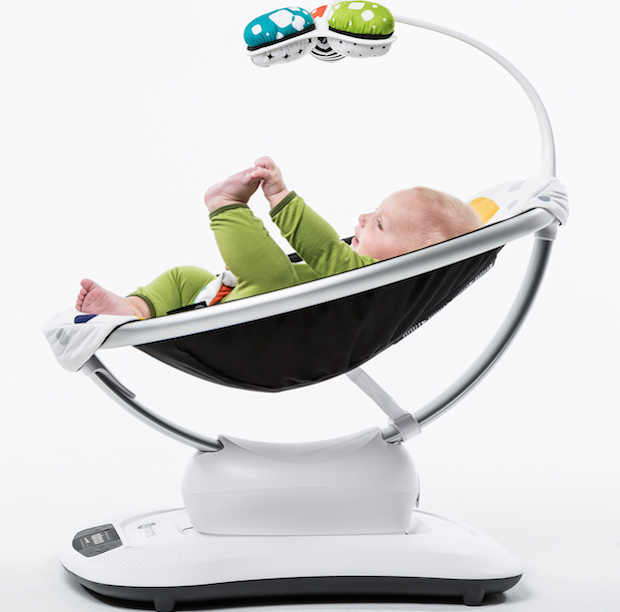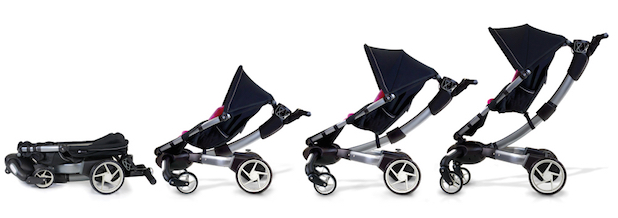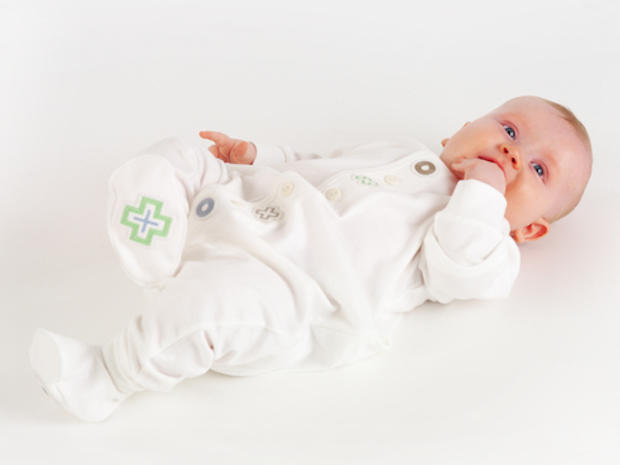Baby products go high-tech
When it comes to technology and who it serves, there is no age limit. Nowadays, even babies are getting wired with gadgets and wearable gizmos that aim to make parenting a little bit easier.
"Within the past year to 18 months, we've seen a surge in high-tech baby products," Robin Raskin, founder and president of Living in Digital Times, a company that produces tech industry trade shows, told CBS News.
From digital pacifiers that track a baby's temperature to strollers with built-in LCD screens, these devices are instantly connecting babies to the digital world.
Here are some of the high-tech baby products that were recently introduced at the 2015 Consumer Electronics Show in Las Vegas, along with others competing for the affection of the next generation:
Smart pacifier
The Pacif-i "smart pacifier" is equipped with Bluetooth. It tracks baby's temperature and sends readings directly to a parent's smartphone. It also has a location-tracking sensor to find the pacifier if it gets lost or monitor the baby's whereabouts. It's available for pre-order online for $40.
Wearable monitor
Sproutling is a wearable baby monitor that goes around the baby's ankle, tracking sleeping patterns and other health metrics at all times. It monitors the baby's movement and heart rate, and predicts when the baby will wake up and what mood the baby will be in by using the sleeping pattern data. It's expected to hit the market in March at a price of $299.
Natural rocker
The movements of this self-rocking seat can be controlled from your smartphone.The Bluetooth-enabled mamaRoo can also play soothing tunes, and it comes with a variety of motions that are supposed to mimic how a mother rocks her baby. Prices start at $239.99.
Power-folding stroller
The same company that makes mamaRoo also offers the Origami stroller. As its name implies, the stroller folds and unfolds with the touch of a button. The LCD screen on the dashboard shows the distance traveled, speed and temperature. Generators built into the wheels keep the electronics charged while you stroll and even power a built-in phone charger. It's priced at $849.99.
Temperature-sensing onesie
Signature onesies from AHAlife are made out of the same fabric used to make NASA spacesuits, and promise to regulate body temperature to prevent the baby from overheating. Price: $50.
What's behind the trend
Manufacturers see a growing market for products that infuse the latest technology into traditional baby items like rocking chairs or pacifiers that have been around for generations. According to Raskin, the creation of Bluetooth wireless technology, cloud data storage, sensors, and smartphones combined to enable many of these ordinary objects to go digital.
"These four building blocks have changed everything," Raskin said. "When you have these four fundamental technologies, it's a recipe for a variety of innovative products to help mothers take care of babies," Raskin said.
While nifty innovations like these are meant to make mothers' and fathers' lives more convenient, there are concerns about an over-reliance on some of the new parenting technologies that mimic or even seek to replace functions traditionally fulfilled by parents themselves.
"No technology is every going to replace the power and value of a nurturing caregiver," said Dr. Ari Brown, spokesperson for the American Academy of Pediatrics.
Take the self-rocking "mamaRoo" seat that duplicates mothers' motions, recently created by a baby product startup company 4moms. "We're not redefining how moms and babies interact...we're just trying to make it easier for moms to do daily things, so she has more energy to spend time with the baby," CEO and co-founder Rob Daley said.
Daley explained what went into the high-tech design and engineering process. The company had moms put on vests equipped with accelerometers which measured their bouncing and swaying motion of how they rocked their babies. All of the data taken from the experiment was then used to create the mamaRoo.
One mother from New York said the self-rocking seat rockaRoo, an older version of the mamaRoo made by the same company, has helped her 6-month-old son who has colic.
"When your baby cries constantly, all you want to do is try and soothe them any way you can, and constantly rocking them can be really exhausting," said 30-year-old Amanda Gluck.
She's been using the rocker for six months and said the back-and-forth motion keeps him calm. "It's been a huge savior," she said.
Pediatricians have warned that too much exposure to technology at an early age can be concerning. The American Academy of Pediatrics recommends that children under the age of 2 should avoid TV and Internet "screen time" entirely.
But high-tech gadgets like these are here to stay, and Robin Raskin of Living in Digital Times says we should expect to see even more advanced baby gear in the near future.
"Right now, these technologies give you a lot of data, but by next year, the baby products will have smarter algorithms -- they will even give you specific directions," she said.
